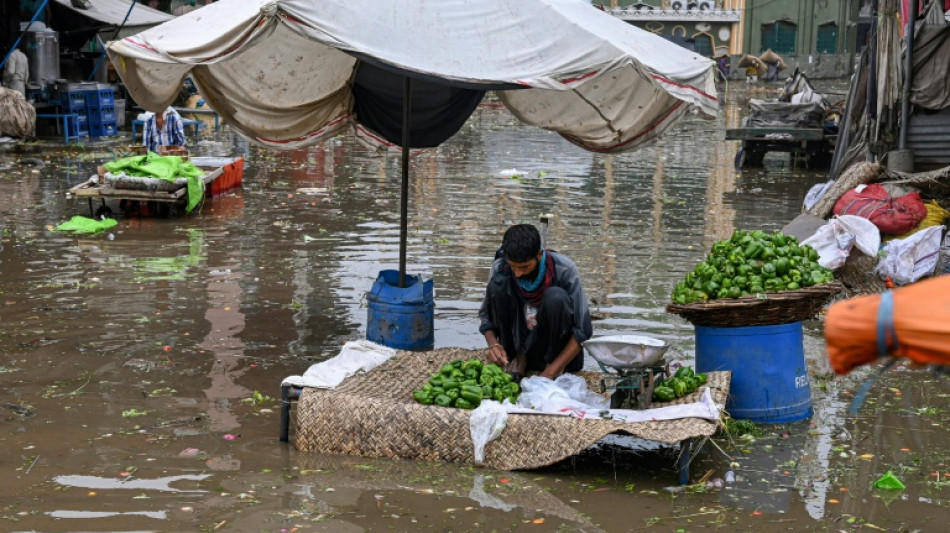
-
 Nigerian government frees 130 kidnapped Catholic schoolchildren
Nigerian government frees 130 kidnapped Catholic schoolchildren
-
Captain Kane helps undermanned Bayern go nine clear in Bundesliga

-
 Captain Kane helps undermanned Bayern go nine clear
Captain Kane helps undermanned Bayern go nine clear
-
Rogers stars as Villa beat Man Utd to boost title bid

-
 Barca strengthen Liga lead at Villarreal, Atletico go third
Barca strengthen Liga lead at Villarreal, Atletico go third
-
Third 'Avatar' film soars to top in N. American box office debut

-
 Third day of Ukraine settlement talks to begin in Miami
Third day of Ukraine settlement talks to begin in Miami
-
Barcelona's Raphinha, Yamal strike in Villarreal win

-
 Macron, on UAE visit, announces new French aircraft carrier
Macron, on UAE visit, announces new French aircraft carrier
-
Barca's Raphinha, Yamal strike in Villarreal win

-
 Gunmen kill 9, wound 10 in South Africa bar attack
Gunmen kill 9, wound 10 in South Africa bar attack
-
Allegations of new cover-up over Epstein files

-
 Atletico go third with comfortable win at Girona
Atletico go third with comfortable win at Girona
-
Schwarz breaks World Cup duck with Alta Badia giant slalom victory

-
 Salah unaffected by Liverpool turmoil ahead of AFCON opener - Egypt coach
Salah unaffected by Liverpool turmoil ahead of AFCON opener - Egypt coach
-
Goggia eases her pain with World Cup super-G win as Vonn takes third

-
 Goggia wins World Cup super-G as Vonn takes third
Goggia wins World Cup super-G as Vonn takes third
-
Cambodia says Thai border clashes displace over half a million

-
 Kremlin denies three-way US-Ukraine-Russia talks in preparation
Kremlin denies three-way US-Ukraine-Russia talks in preparation
-
Williamson says 'series by series' call on New Zealand Test future

-
 Taiwan police rule out 'terrorism' in metro stabbing
Taiwan police rule out 'terrorism' in metro stabbing
-
Australia falls silent, lights candles for Bondi Beach shooting victims

-
 DR Congo's amputees bear scars of years of conflict
DR Congo's amputees bear scars of years of conflict
-
Venison butts beef off menus at UK venues

-
 Cummins, Lyon doubts for Melbourne after 'hugely satsfying' Ashes
Cummins, Lyon doubts for Melbourne after 'hugely satsfying' Ashes
-
'It sucks': Stokes vows England will bounce back after losing Ashes

-
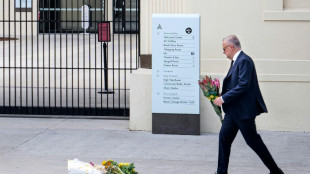 Australia probes security services after Bondi Beach attack
Australia probes security services after Bondi Beach attack
-
West Indies need 462 to win after Conway's historic century

-
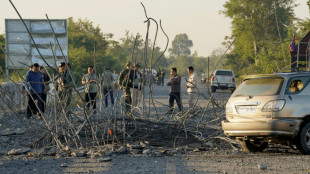 Thai border clashes displace over half a million in Cambodia
Thai border clashes displace over half a million in Cambodia
-
Australia beat England by 82 runs to win third Test and retain Ashes

-
 China's rare earths El Dorado gives strategic edge
China's rare earths El Dorado gives strategic edge
-
Japan footballer 'King Kazu' to play on at the age of 58

-
 New Zealand's Conway joins elite club with century, double ton in same Test
New Zealand's Conway joins elite club with century, double ton in same Test
-
Australian PM orders police, intelligence review after Bondi attack
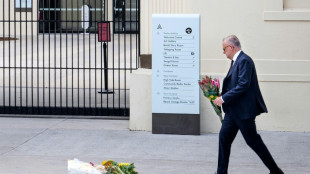
-
 Durant shines as Rockets avenge Nuggets loss
Durant shines as Rockets avenge Nuggets loss
-
Pressure on Morocco to deliver as Africa Cup of Nations kicks off

-
 Australia remove Smith as England still need 126 to keep Ashes alive
Australia remove Smith as England still need 126 to keep Ashes alive
-
Myanmar mystics divine future after ill-augured election

-
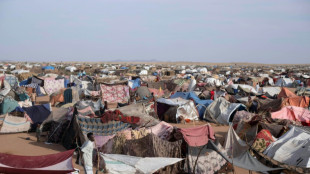 From the Andes to Darfur: Colombians lured to Sudan's killing fields
From the Andes to Darfur: Colombians lured to Sudan's killing fields
-
Eagles win division as Commanders clash descends into brawl

-
 US again seizes oil tanker off coast of Venezuela
US again seizes oil tanker off coast of Venezuela
-
New Zealand 35-0, lead by 190, after racing through West Indies tail

-
 How Can Gum Disease Lead to Tooth Loss in Kyle, TX?
How Can Gum Disease Lead to Tooth Loss in Kyle, TX?
-
West Indies 420 all out to trail New Zealand by 155

-
 Arteta tells leaders Arsenal to 'learn' while winning
Arteta tells leaders Arsenal to 'learn' while winning
-
Honour to match idol Ronaldo's Real Madrid calendar year goal record: Mbappe

-
 Dupont helps Toulouse bounce back in Top 14 after turbulent week
Dupont helps Toulouse bounce back in Top 14 after turbulent week
-
Mbappe matches Ronaldo record as Real Madrid beat Sevilla

-
 Gyokeres ends drought to gift Arsenal top spot for Christmas
Gyokeres ends drought to gift Arsenal top spot for Christmas
-
Arsenal stay top despite Man City win, Liverpool beat nine-man Spurs


Every 1C of warming means 15% more extreme rain, researchers say
Global heating incrementally boosts the intensity of extreme rainfall at higher altitudes, putting two billion people living in or downstream from mountains at greater risk of floods and landslides, researchers said Wednesday.
Every degree Celsius of warming increases the density of major downpours by 15 percent at elevations above 2,000 metres, they reported in the journal Nature.
On top of that, each additional 1,000 metres of altitude adds another one percent of rainfall.
A world, in other words, 3C hotter than preindustrial levels will see the likelihood of potentially devastating deluges multiply by nearly half.
The findings underscore the vulnerability of infrastructure not designed to withstand extreme flooding events, the authors warned.
Earth's surface has already warmed 1.2C, enough to amplify record-breaking downpours that put huge swathes of Pakistan under water last summer, and parts of California earlier this year.
On current policy trends, the planet will warm 2.8C by century's end, according to the UN's IPCC climate science advisory panel.
The new study -- based on data covering the last 70 years, and climate-model projections -- found two main drivers behind the upsurge in extreme rainfall events at altitude in a warming world.
The first is simply more water: scientists have long known that every 1C increase boosts the amount of moisture in the atmosphere by seven percent.
- From snow to rain -
Since the 1950s, heavy rainfall has become more frequent and intense across most parts of the world, according to the World Weather Attribution (WWA) consortium, which teases out the impact of climate change on specific extreme weather events, including heatwaves, droughts and tropical storms.
Extreme rainfall is more common and intense because of human-caused climate change in Europe, most of Asia, central and eastern North America, and parts of South America, Africa and Australia, the WWA has found.
The second factor uncovered by researchers was more surprising.
"This is first time that anyone has looked at whether those intense precipitation events fall as rain or snow," lead author Mohammed Ombadi, a researcher at Lawrence Berkeley National Laboratory in California, told AFP.
"Unlike snowfall, rainfall triggers runoff more rapidly, leading to a higher risk of flooding, landslide hazards and soil erosion."
Ombadi speculated that a higher rate of snow-turned-to-rain observed between 2,500 and 3,000 metres was due to precipitation at that altitude occurring a just below freezing.
The mountainous regions and adjacent flood plains likely to experience the biggest impacts from extreme rainfall events are in and around the Himalayas and North America's Pacific mountain ranges, according to the study.
The findings focused only on the northern hemisphere due to a lack of observational data from below the equator.
The regions most affected should prepare "robust climate adaptation plans," the authors said.
"We need to consider this increase in rainfall extremes in the design and building of dams, highways, railroads and other infrastructure if we want to make sure they will remain sustainable in a warmer climate," said Ombadi.
High-risk areas will either need to be avoided altogether, or built up with engineering solutions that can protect the communities living there, he added.
S.Gregor--AMWN



